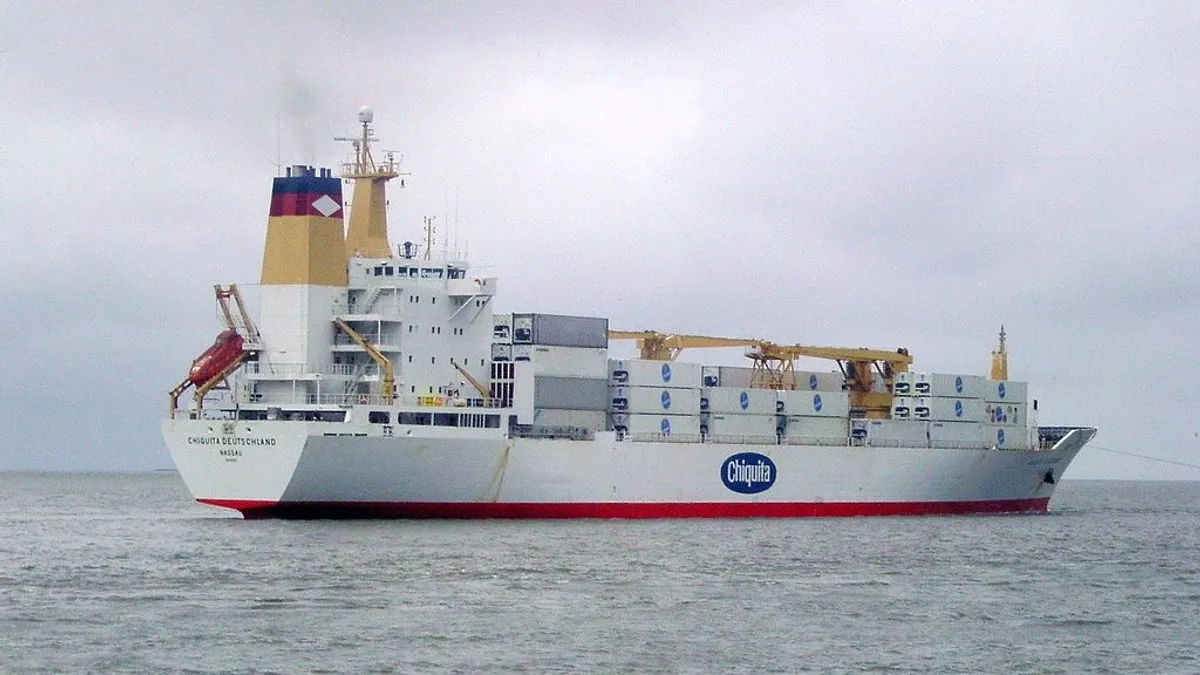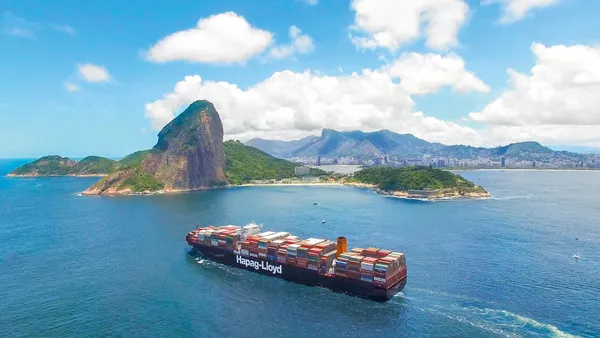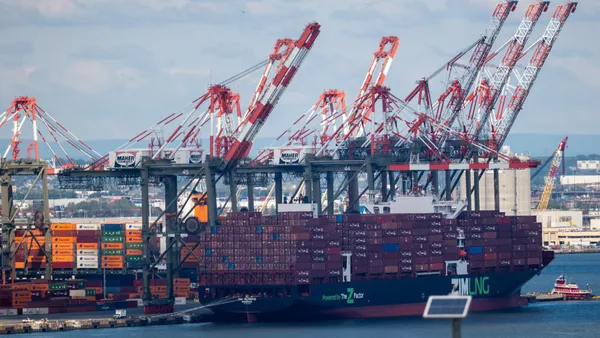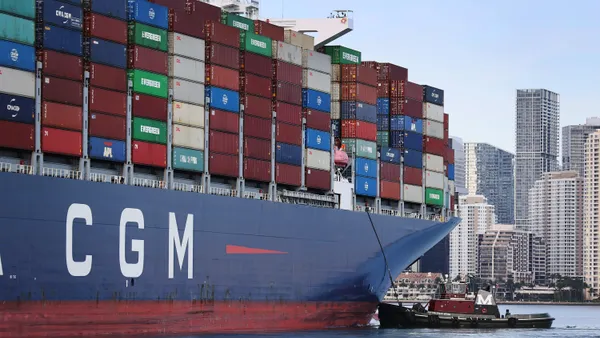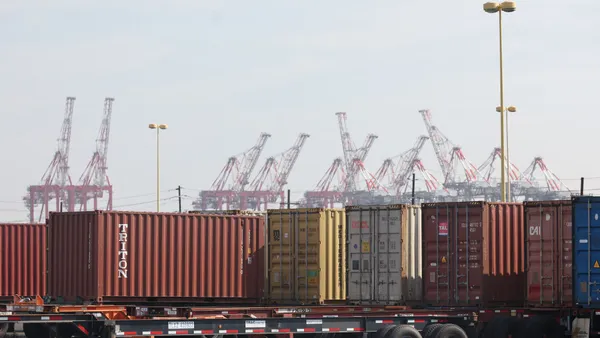Dive Brief:
- Due to slower than expected fleet growth rates, shippers should expect reefer availability to be tight moving into peak season this year, according to Drewry's Reefer Shipping Annual Report for 2019 and 2020.
- Based on Drewry's analysis, the squeeze is due to a "dramatic halt in reefer equipment expenditure" that took place in 2016, primarily due to manufacturing costs, which the industry has been steadily recovering from since. Despite the sector's current 4.5% compound annual growth rate (CAGR), which is outperforming the rest of the container industry, the firm predicts supply won't meet growing demand for reefer containers until after 2023.
- "We expect container carriers to continue to improve the effective availability of reefer containers through more centralised inventory and imbalance management," Drewry’s director of research products Martin Dixon, said in the release. A shift away from traditional breakbulk shipping fleets to individual refrigerated containers "is providing container carriers with an attractively expanding market in reefer cargo," Dixon added.
Dive Insight:
Reefer cargo volume growth rates declined from 4.4% in 2018 to 3% in 2019, according to Drewry's report, which is below the 3.5% 10-year average for the industry. The report found this was "driven by a slowdown in shipments of meat and poultry, fish and seafood, and banana shipments, as well as a contraction in deciduous trade," driven in part by "rising geopolitical risks."
In spite of the tumultuous global trade environment, consumer demand for fresh food items continues to grow, driving expansion in the cold shipping industry from reefer containers to refrigerated warehouses. While Drewry predicts reefer supply growth will be slower than needed over the coming years due to these manufacturing and trade factors, carriers are still making investments in reefers moving into peak season this year to maintain capacity.
ONE announced this week it will add 6,000 reefers to its fleet to prepare for peak season, after previously adding 14,000 refrigerated containers in 2018. In a press release, the carrier said it made the investment "to meet growing demand for containerized reefer trade, which remains strongly augmented by expansion of the middle class in Asia constantly demanding healthy food choices."
Likewise, Hapag-Lloyd announced in July 2019 it will add 13,420 new reefers to its fleet, which are due to be delivered this November.
Still, outsized demand relative to supply has led reefer rates to "outperform dry box rates," Dixon said, a trend that is likely to continue in the future until availability increases.



